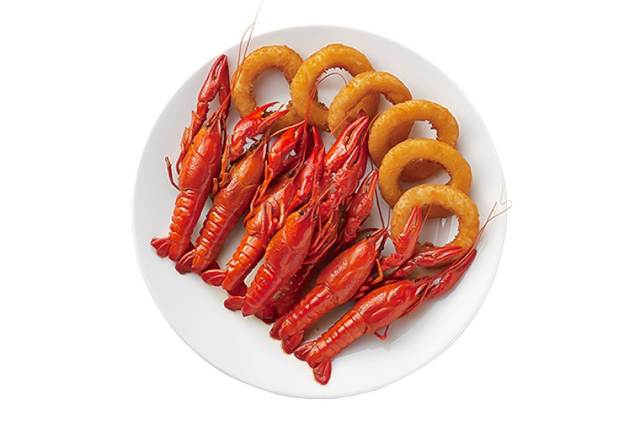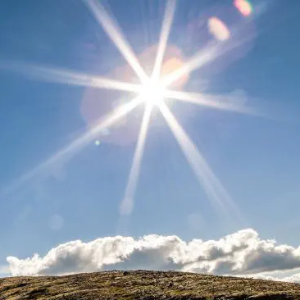Here we go again. Another industry imperiled by climate change. It’s the Louisiana crawfish fishery. And the Governor has issued a disaster declaration. Louisianans live or die according to the crawfish catch…
 Classic Louisiana Boiled Crawfish and Onion Rings: Mardi Gras
Classic Louisiana Boiled Crawfish and Onion Rings: Mardi Gras
revellers this year were disappointed by a severe shortage…
Me-o, my-o!
Son of a gun – they have no fun on the bayou…
This year’s Louisana crawfish harvest is a disaster. And Governor Jeff Landry has signed an Executive Order issuing a Disaster Declaration for the Crawfish Aquaculture Industry. The declaration opens the way for the industry to apply for federal relief funds. “All 365,000 crawfish acres in Louisiana have been affected by these conditions,” Landry said in a statement.
“Crawfish is more than just a product in Louisiana; it’s a way of life. This is a helping hand for an industry facing an unprecedented economic burden,” Congressman Troy A. Carter, Sr. emphasized.
What happened?
“Last year’s drought has created severe economic injury to Louisiana’s crawfish industry and related businesses,” said Congressman Clay Higgins.
The annual harvest usually nets from 175 million to 200 million pounds of crawfish worth $500 million to the state’s economy.
But there was a drought last year, drying out the fresh water mud flats where the ‘mudbugs’ lay their eggs. And an intrusion of salt water into the crawfish swamps also contaminated large swathes of the normally productive wetlands.
The shortage is the worst ever recorded. According to the Acadian Advocate, “This time last year prices were averaging around $3 to $5 for a pound of boiled crawfish. Now, restaurants across the state are selling at $10 to $12 per pound — and that’s a drop from where prices stood a few weeks ago, up to $14 a pound.”
The result
The Canadian Press reports, “The tail meat, fresh or frozen, of the tiny lobster-like crustaceans are used in a variety of dishes, including crawfish étouffée, gumbos and po-boys. But the most popular way to serve them is boiled with corn and potatoes and a variety of seasonings. Crawfish boils, which see pounds of the freshly cooked crustaceans poured onto communal tables, are popular during Carnival season and during Lent, when many in heavily Catholic south Louisiana seek alternatives to meat.”
Collateral damage
Among the larger industries impacted negatively by the crawfish shortage is tourism. Folks who came from all over the world to New Orleans for Mardi Gras last week found no crawfish on the menu. Organizers are hoping fervently the weather is better this coming year. And that those Mardi Gras revellers will be able to overcome their disappointment and return in 2025.
Tourism means millions of dollars a year to Louisiana. But there are also the folks who supply the crawfish industry, and the restaurants and packers who rely on at least an average harvest to keep them afloat. They’re all in trouble this year.
My take
This is just another example of the social and economic upheaval climate change is wreaking on the area surrounding the Gulf of Mexico. It’s unfortunate that disasters such as the crawfish crash are often overlooked by the media in their rush to cover bigger stories such as the monumental destruction wrought by the huge hurricanes we’ve seen in the region over the past year. And there are many more small- and medium-sized situations that should not – but do – go unreported.
Around the world, fisheries are being disrupted on a huge scale as ocean waters grow warmer. That trend is making marine environments unfriendly to the fish and shellfish species that have called them home for eons.
On land, the Mediterranean Olive and wine grape crops have been hit hard by extremely hot, dry weather over the past couple of years. Anywhere you look on the map, there’s something similar happening.
My point? We all need to be aware of what’s going on. The collective result of all the changes and disasters is affecting our food supply in a big way. And throwing millions of people’s lives into disarray. Climate change is here!
~ Maggie J.

